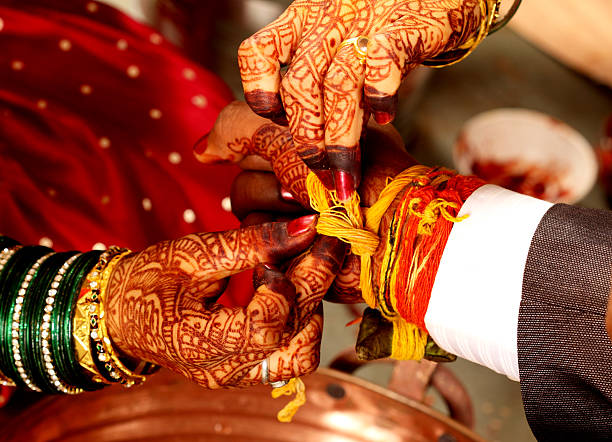Introduction for budget wedding ceremony in India-
Weddings in India are known for their grandeur and extravagance, with families spending significant amounts of money to make their wedding ceremonies memorable. However, not everyone can afford to have a lavish wedding, and many couples are now opting for budget weddings in India. Budget weddings are weddings that are planned and executed within a limited budget without compromising on the overall wedding experience.
In this context, this essay aims to explore the concept of budget weddings in India, its significance, and the key factors that make budget weddings a popular choice among couples. In everybody’s life wedding ceremony is important of life which have spent approximately 25% of life savings our amount. So we can imagine that how important stage for our life.
Most of the wedding ceremony makes their expenses through taking loan from various sources very few people in India spent money on wedding ceremony without taking loans. Therefore it is status symbol and must do activity in our life with society participation and recognition to our marriages. The high society and high income people set a standard of wedding ceremony which other society have to match it so to avoid these set rules and plan for smart wedding ceremony planning is must in today’s life.
How to plan a budget wedding in India?
Planning a budget wedding in India requires careful consideration and smart spending. Here are some tips to help you plan a beautiful wedding without breaking the bank:
- Set a realistic budget: The first step is to set a realistic budget for your wedding. Consider your income, savings, and any contributions from family members. Be sure to allocate funds for all the major expenses such as venue, catering, decor, and photography.
- Choose an off-season date: Wedding venues and vendors tend to charge higher prices during peak wedding season. Consider having your wedding during the off-season to save on costs.
- Keep the guest list small: The more guests you invite, the higher the cost of catering, decor, and other expenses. Keep your guest list small and intimate.
- Opt for a day wedding: Evening weddings tend to be more expensive as they require additional lighting and decor. Consider having a day wedding instead to save on costs.
- DIY decor: Consider doing some of the decor yourself instead of hiring a professional decorator. You can also ask family and friends to help out with the decor.
- Choose a budget-friendly venue: Instead of booking a fancy hotel or banquet hall, consider alternative venues such as a park or community center. These venues are often more affordable and can be decorated beautifully.
- Negotiate with vendors: Don’t be afraid to negotiate with vendors for a better price. Ask for discounts or package deals to save on costs.
- Choose a simple menu: Instead of a lavish multi-course meal, opt for a simple and delicious menu. Consider having a buffet or family-style meal to save on costs.
- Use local flowers: Instead of expensive imported flowers, use locally sourced flowers for your decor. They are often more affordable and also add a touch of local flavor to your wedding.
- Keep it simple: Remember, the most important part of your wedding is the love between you and your partner. Focus on what really matters and keep it simple.
By following these tips, you can plan a beautiful and memorable wedding without breaking the bank. Good luck!
What is the 50 30 20 rule in Wedding Budget?
The 50/30/20 rule can also be applied to wedding budgeting to help couples allocate their wedding expenses in a balanced and efficient way. Here’s how it can be adapted for weddings:
- 50% for Venue, Catering, and Photography: This category includes the essential expenses for the wedding such as the venue rental, catering, photography, and other necessary expenses. Allocate half of your wedding budget towards these expenses.
- 30% for Décor and Entertainment: This category includes discretionary expenses such as décor, entertainment, and other personal touches that make the wedding unique and memorable. Allocate 30% of your budget towards these expenses.
- 20% for Attire and Miscellaneous Expenses: This category includes expenses for the bride and groom’s attire, transportation, invitations, favors, and other miscellaneous expenses. Allocate 20% of your budget towards these expenses.
The 50/30/20 rule can be a helpful guideline for couples planning their wedding budget. However, it’s important to note that every wedding is unique and may require adjustments to the percentages based on individual circumstances and preferences.
How much should we save for a wedding in India?
The cost of a wedding in India can vary widely depending on various factors such as the city, the venue, the number of guests, the type of wedding, and other personal preferences. However, on average, a traditional Indian wedding can cost anywhere from INR 5 lakhs to INR 50 lakhs or more.
To determine how much you should save for your wedding, start by creating a budget based on your personal preferences and priorities. Consider the following expenses when creating your wedding budget:
- Venue and Catering: This includes the cost of the wedding venue, catering, and related expenses such as decorations, rentals, and staff.
- Wedding Attire: This includes the cost of the bride and groom’s outfits, jewelry, and accessories.
- Photography and Videography: This includes the cost of hiring a professional photographer and videographer to capture the wedding moments.
- Entertainment: This includes the cost of music, dance performances, and other forms of entertainment during the wedding ceremony and reception.
- Transportation: This includes the cost of transportation for the bride and groom, their families, and guests.
- Miscellaneous Expenses: This includes the cost of wedding invitations, favors, and other miscellaneous expenses.
Once you have a budget, start saving as early as possible to meet your wedding expenses. You can also consider taking a wedding loan or funding your wedding through a mix of personal savings and contributions from family members.
How do you set up a budget to get married?
Setting up a budget for a wedding is an important step in the planning process to ensure that you don’t overspend and end up with unnecessary debt. Here’s how to set up a budget for your wedding:
- Determine your overall budget: Start by determining how much you can realistically afford to spend on your wedding. This will depend on your personal financial situation, including your income, savings, and other financial obligations.
- Prioritize your expenses: Make a list of all the expenses you expect to incur during your wedding, including the venue, catering, décor, attire, photography, transportation, and other miscellaneous expenses. Prioritize your expenses based on what is most important to you.
- Allocate your budget: Use the 50/30/20 rule or the wedding-specific version of the rule (explained in a previous answer) to allocate your budget among the different expense categories.
- Keep track of your spending: As you start making purchases and booking vendors, keep track of your spending to ensure that you’re staying within your budget. You can use a wedding budget spreadsheet or an app to help you track your expenses.
- Adjust your budget as needed: If you find that you’re overspending in one category, adjust your budget accordingly by cutting back on expenses in other categories or finding ways to save on wedding expenses.
- Stick to your budget: Finally, it’s important to stick to your budget and avoid unnecessary expenses that can quickly add up. Remember, the goal is to have a memorable wedding that you can afford without going into debt.
What are the largest expenses with a wedding?
The largest expenses with a wedding typically include the following:
- Venue and Catering: The cost of the wedding venue and catering is usually the largest expense in a wedding budget. This includes the cost of renting the venue, providing food and beverages for the guests, and any additional costs for decorations, rentals, and staffing.
- Wedding Attire: The cost of the bride and groom’s wedding attire, including their outfits, accessories, hair and makeup, and any other related expenses can be a significant expense.
- Photography and Videography: Hiring a professional photographer and videographer to capture the wedding memories is also a significant expense, as it involves their services, equipment, and any post-production work.
- Entertainment: Entertainment, such as music and dance performances during the wedding ceremony and reception, can also be a significant expense, depending on the type and number of performers.
- Transportation: The cost of transportation for the bride and groom, their families, and guests can also add up, especially if you need to hire luxury cars or other modes of transportation.
- Decorations and Florals: The cost of decorations and florals, including the wedding arch, centerpieces, bouquets, and other floral arrangements, can also be a significant expense.
It’s important to prioritize your wedding expenses based on what is most important to you and allocate your budget accordingly. By doing so, you can ensure that you’re spending your money on the things that matter most to you and staying within your budget.
What are the elements of expenses should avoid while wedding ceremony in India?
While planning a wedding in India, it is important to manage your expenses and avoid overspending. Here are some elements of expenses that you may consider avoiding to keep the wedding budget in check:
- Excessive Decoration: While it is important to have a beautifully decorated venue, over-the-top decorations can result in an unnecessary expense. Try to keep the decorations simple yet elegant, and avoid using expensive flowers and other decor items.
- Expensive Invitations: While wedding invitations are an important part of the wedding, expensive invitations with intricate designs and embellishments can add up to the cost. Consider using digital invitations or simple printed invitations instead.
- Extravagant Gifts: While it is customary to give gifts to the guests, expensive and elaborate gifts can add up to the overall expenses. Consider giving simple and thoughtful gifts that are within your budget.
- Unnecessary Entertainment: While entertainment is an important aspect of an Indian wedding, it is important to avoid unnecessary expenses on expensive performers and entertainers. Consider opting for local performers or DJs who can provide good entertainment at a reasonable cost.
- Unnecessary Wedding Favors: While wedding favors are a great way to thank the guests for attending the wedding, expensive and unnecessary favors can add up to the cost. Consider giving simple and affordable favors that are practical and useful.
- Multiple Venues: Having multiple venues for different wedding functions can add up to the overall cost. Consider having all the wedding functions at one venue, which can help in saving money on transportation and venue costs.
- Expensive Wedding Dresses: While it is natural to want to look your best on your wedding day, expensive wedding dresses can add up to the cost. Consider renting a wedding dress or buying a dress within your budget.
These expenses varies by budget to budget depends upon income status of the person and therefore it is important to fixed the budget target while making expenses in wedding. The above expenses you should have to be avoid while doing wedding arrangement.
How do you arrange money for Wedding?
There are several ways to arrange money for a wedding. Here are a few options to consider:
- Start saving early: It is a good idea to start saving for your wedding as soon as possible. Setting aside a portion of your income each month can help you build up a considerable amount of money over time.
- Create a budget: Creating a budget for your wedding can help you plan your expenses and avoid overspending. It is important to prioritize your expenses and allocate funds accordingly.
- Ask for financial help from family members: You can consider asking your family members for financial help. They may be willing to contribute to your wedding expenses.
- Take a personal loan: If you need additional funds, you can consider taking a personal loan. However, it is important to carefully consider the terms and conditions of the loan before borrowing.
- Cut down on unnecessary expenses: You can save money by cutting down on unnecessary expenses. For example, you can choose a less expensive venue or opt for a smaller guest list.
Remember, the most important thing is to plan your expenses and stick to your budget. By being financially responsible, you can enjoy your wedding without breaking the bank.
How much does a middle class Indian wedding cost in India?
The cost of a middle-class Indian wedding in India can vary greatly depending on several factors such as the location of the wedding, number of guests, and the scale of the event. However, to give you an approximate idea, a middle-class Indian wedding in a metro city can cost anywhere between INR 5 lakhs to INR 15 lakhs (approximately USD 6,800 to USD 20,400).
This budget would cover the cost of venue rental, catering, decorations, wedding attire, photography and videography, music and entertainment, transportation, and miscellaneous expenses as mentioned in the previous answer. However, it is important to note that this is just an approximate estimate, and the actual cost of a wedding can vary widely depending on individual preferences and choices.
Key Features of smart marriage management in India
Smart marriage management is becoming increasingly popular in India as people are looking for more efficient ways to organize and manage weddings. Here are some key features of smart marriage management in India:
- Online planning tools: Smart marriage management platforms provide online tools for planning and organizing weddings, such as guest list management, vendor management, and budget tracking.
- Digital invitations: Smart marriage management platforms provide digital invitations that can be sent to guests via email or messaging apps, reducing the need for paper invitations.
- Vendor management: Smart marriage management platforms provide a list of pre-verified and trusted vendors for various wedding services such as catering, decoration, photography, etc.
- Real-time communication: Smart marriage management platforms provide real-time communication channels between the couple, wedding planner, and vendors to ensure smooth coordination and execution of the wedding.
- Mobile apps: Smart marriage management platforms have mobile apps that can be used by the couple and guests to stay updated on the wedding schedule, receive notifications, and RSVP to events.
- Smart budget management: Smart marriage management platforms provide tools for efficient budget management, allowing couples to keep track of expenses and optimize their spending.
- Customization: Smart marriage management platforms offer customization options for various aspects of the wedding, allowing couples to personalize their wedding according to their preferences.
In summary, smart marriage management in India provides a streamlined and efficient way of organizing and managing weddings, allowing couples to focus on enjoying their special day without the stress of logistical planning.
Critical Analysis of Wedding Ceremony expenses in India-
Wedding ceremonies in India are often elaborate affairs, with various customs, rituals, and ceremonies that can last for several days. While these ceremonies are a significant part of Indian culture and tradition, they can also be very expensive. Here is a critical analysis of wedding ceremony expenses in India:
- Excessive spending: In many cases, wedding ceremonies in India involve excessive spending on various aspects such as venue rental, catering, decorations, and jewelry. This can lead to financial strain on the couple and their families, who may end up taking loans or borrowing money to finance the wedding.
- Social pressure: There is often social pressure in India to have a grand and elaborate wedding, especially if the family is well-off or has a social status to maintain. This pressure can lead to overspending on the wedding, even if it is not financially feasible.
- Inefficient spending: In many cases, the expenses on a wedding ceremony are not optimized and may not provide value for money. For example, spending a large amount on elaborate decorations that are only used for a few hours during the wedding ceremony.
- Wastage: Weddings in India often involve a lot of wastage, such as excess food and decorations, which are discarded after the event. This wastage can have a negative impact on the environment.
- Cultural significance: It is important to acknowledge the cultural significance of wedding ceremonies in India and the importance of maintaining traditions. However, it is also important to strike a balance between cultural significance and financial responsibility.
In conclusion, while wedding ceremonies in India are an important part of the culture and tradition, excessive spending on weddings can have negative consequences. It is important to find a balance between cultural significance, financial responsibility, and efficient spending to ensure that weddings in India are enjoyable and memorable without causing undue financial strain or environmental harm.
Conclusion for Wedding Ceremony expenses in India-
In conclusion, wedding ceremony expenses in India can be a significant burden for many families, leading to financial strain and wastage. While it is important to maintain cultural traditions and have an enjoyable wedding experience, it is equally important to strike a balance between cultural significance and financial responsibility.
Smart marriage management tools and platforms can help optimize wedding expenses and reduce wastage, while still maintaining the cultural significance of the wedding ceremony. By finding a balance between cultural traditions, financial responsibility, and efficient spending, wedding ceremonies in India can be enjoyable and memorable for all, without causing undue financial strain or harm to the environment.



